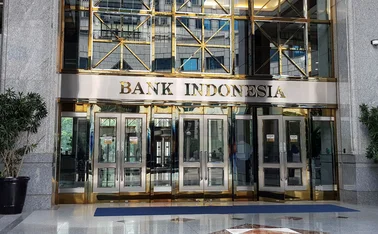- Web
- Feb 05, 2026
Indonesian rupiah surpasses 1998 low, central bank steps in
-

- Web Desk Karachi
- Apr 09, 2025

JAKARTA, INDONESIA: Indonesia’s rupiah fell to its lowest in history against the dollar as market participants priced in the impact of rising trade frictions around the globe.
The currency dropped 0.5 percent to 16,957 per dollar during intraday trading on Wednesday. That surpassed its previous weakest point in 1998, during the Asian Financial Crisis. The 10-year yield rose about nine basis points to 7.17 percent, while stocks fell as much as 0.6 percent after gaining as much as 1.6 percent in early trading, reported the Bloomberg.
US President Donald Trump’s reciprocal tariffs and the Chinese government’s retaliation have triggered a selling spree in global financial assets. The Indonesian market particularly was still playing catch-up after being shut for more than a week for the Eidul Fitr holiday.
“We are staying cautious on the rupiah and other emerging market currencies given that the tariff situation looks immensely uncertain at this point,” Malayan Banking Bhd strategist led by Saktiandi Supaat wrote in a note to clients on Wednesday.
President Praowo Subianto, together with high ranking officials including Finance Minister Sri Mulyani Indrawati moved to restore market confidence by holding a meeting with ministers and business leaders on Tuesday. Indrawati pledged to keep the state budget prudent and transparent to anchor confidence, while Prabowo said the country will ease import restrictions and buy more goods from the US.
EV adoption: Indonesia’s car sales rise for first time since June 2023
The central bank had already made an “aggressive” intervention on Tuesday when the market reopened from the long holiday and the rupiah dropped by the most in a year.
However, the weaker the rupiah could provide an attractive entry point for Indonesian local currency assets, according to an analyst. “I am genuinely optimistic,” he said as “Indonesian assets are very much oversold despite the fact that the economy is relatively tariff-proof with exports to the US accounting for only 2 percent of the GDP.”




